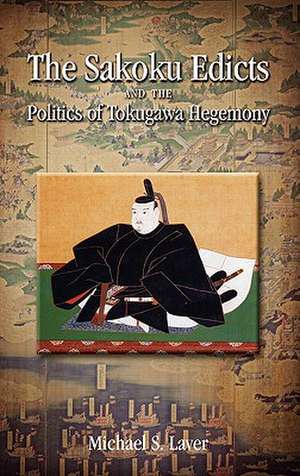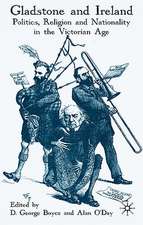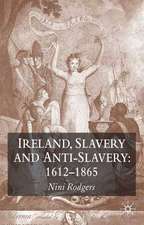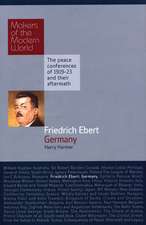The Sakoku Edicts and the Politics of Tokugawa Hegemony
Autor Michael S. Laveren Limba Engleză Hardback – 31 dec 2010
Preț: 590.66 lei
Preț vechi: 642.02 lei
-8% Nou
Puncte Express: 886
Preț estimativ în valută:
113.10€ • 116.54$ • 94.91£
113.10€ • 116.54$ • 94.91£
Carte tipărită la comandă
Livrare economică 21 februarie-07 martie
Preluare comenzi: 021 569.72.76
Specificații
ISBN-13: 9781604977387
ISBN-10: 1604977388
Pagini: 234
Dimensiuni: 152 x 229 x 18 mm
Greutate: 0.51 kg
Ediția:New.
Editura: Cambria Press
ISBN-10: 1604977388
Pagini: 234
Dimensiuni: 152 x 229 x 18 mm
Greutate: 0.51 kg
Ediția:New.
Editura: Cambria Press












